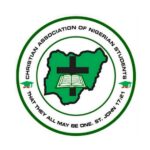Expectedly, the build-up to the 2023 general elections has started at a pace that seemingly trails past dispensations whereby with barely 14 months to go, most of the thousands of aspirants from dozens of political parties to the various elective offices across the country, are still playing shy. This situation has been ascribed to several factors including at least two. Firstly, is the miasma over the new Electoral Act Amendment Bill, which President Muhamadu Buhari recently declined assent to. His decline of assent has thrown a spanner into the entire electoral cycle, with grave concerns over whether the forthcoming 2023 polls dispensation will not be contrived to run on the current discredited Electoral Act, and thereby on the basis of business as usual, with the attendant consequences of taking Nigeria back.
Among the several drawbacks in the present build up to 2023 polls is the gnawing fear (unfounded or otherwise) that the Electoral Act Amendment Bill may eventually not graduate to the status of an Act, if the inclinations of the powers that be are anything to go by. Given the plethora of incontinences in the polity, especially the quick resort of leading lights of the administration to policy somersaults and double speak, one issue of concern is that the new Electoral Act Amendment Act may even be officially considered to be too late in coming, and therefore out of time. Others blame the syndrome of ‘anointed’ successors to the various ‘thrones’ as the offices of the President, state governors and several other political positions are now standing as.
Whatever be the case the point is that ultimately, the forthcoming electoral exercise will usher in a generation of new leaders who will drive the country’s public space into the future. How they will execute the enterprise both as individuals and as a leadership community, qualifies as a matter of significance, as either their failure or success will impact on the wider society inevitably.
That is why the voting public needs to ‘shine’ (Nigerian parlance) their eyes to ensure that they are not shortchanged once more in conceding to potentially disruptive and therefore disastrous leaders as well as a mortgaged future. And the caveat for the voters now is to elect leaders you can control and fire if necessary. In any case, that is exactly what the Constitution envisages in its manifold provisions that governance across the country be run by democratically elected officials with fixed tenures and the portends of forced exit (if and when necessary) hanging on their necks like the ‘Sword of Damocles’.
Hence, while the various aspirants may be launching one image laundering agenda or the other, it is important that the public sees through the veil of packaging to decode the beast or cherub, who may be masked under the garb of publicity. Nevertheless, if as the verse by English playwright William Shakespeare holds that the character of a man cannot be read from the face, how difficult it must be to read the nature and intentions of the typical Nigerian politician, who may be cocooned in the swaddling embrace of Nigeria style media packaging. That is why the typical Nigerian politician easily deceives the voters and climbs into office with the acclaim of the masses, only to ride rough shod on them once in office.
However, all is not lost to the voters as their only sin remains the failure to deploy the instrumentality of impeachability of any aspirant that eventually makes it to public office and turns heel. Incidentally, impeachment of pubic officers has in this country been largely misconstrued as the automatic removal of political office holders from office and is hence seen as the nemesis of such potentates. In the same vein, sponsors of impeachment proceedings are readily seen as ‘enemies of progress’ even when the targeted potentate may be indulging in misconduct that does not conduce to progress in any form. Meanwhile, impeachment is simply the process of initiating queries and investigative procedures against questionable conduct of elected public officers.
As provided for in the Constitution, no political office in the country – from the President to the Local Government Councilor, is a birthright of any occupant. Hence notionally, any such state actor is amenable to be queried and removed from office if necessary, as such owes his or her continued stay in office, to the mercy of the voters. However that is where the concept of democracy in Nigeria, Africa and much of the developing world has its Achilles Heel. In the typical situation, from the moment an aspirant to public office succeeds to ascend into power, the next item on the agenda is to perpetuate himself or herself in office by any means whatsoever. And in most of the instances under consideration, it is the same elements among the oppressed that connive with the oppressors, to muzzle their fellow oppressed.
Hence, as preparations for 2023 progress and aspirants are filling out, it will serve the interest of Nigerians to choose leaders that will be accountable to the common weal. The choices before the Nigerian voters range from the political jobbers with villainous intent to seize power for its sake, subjugate the people and personalize the common patrimony on one hand, to system-friendly political actors with genuine intent to move the country to the next level. How to identify each of them remains an issue, except from their antecedents, and their poker moves in the ongoing ‘horse trading’ that is politics in Nigeria.
Against the back-drop of the country’s recent experiences in political leadership with the attendant syndrome of stagnation and even retardation, what we need are not rulers who are only fixated on how to dominate the nation out of sheer personal greed for power, even at the level of proving uncontrollable as leviathans. What the country needs are administrators, who can identify with the specific challenges of building the country, and act in an accountable manner. They are the hopes of the country, presently.

 Join Daily Trust WhatsApp Community For Quick Access To News and Happenings Around You.
Join Daily Trust WhatsApp Community For Quick Access To News and Happenings Around You.


